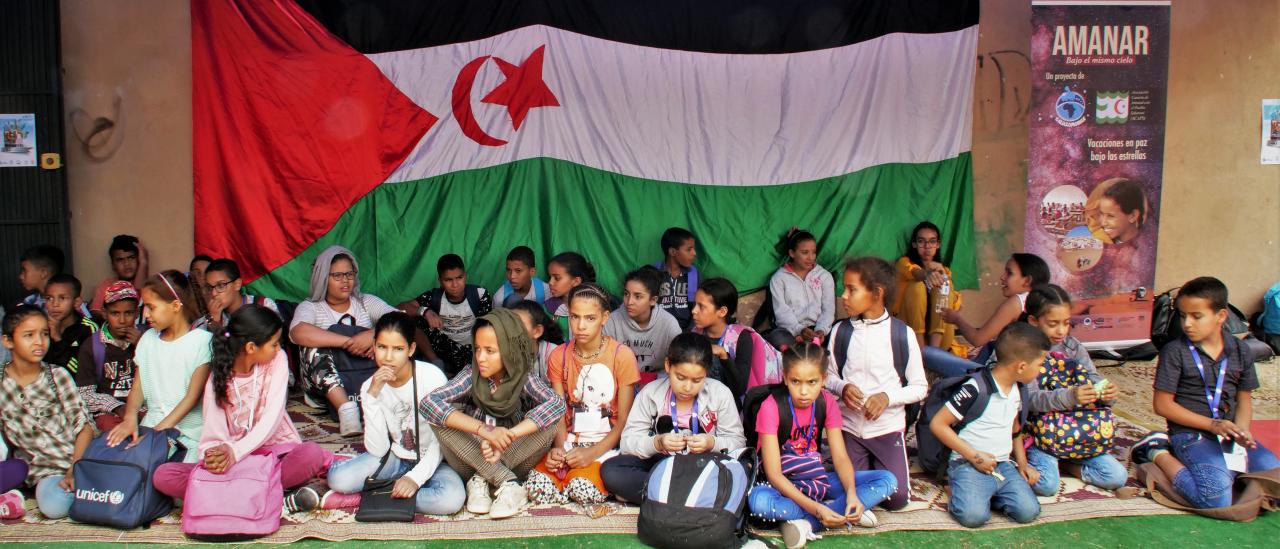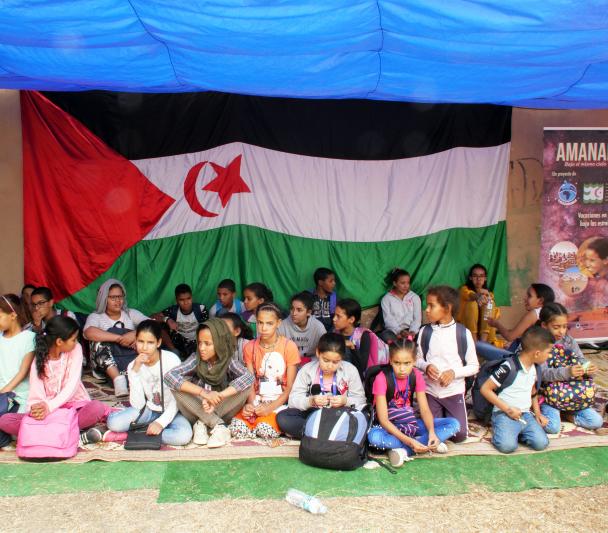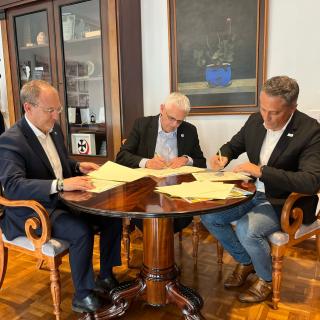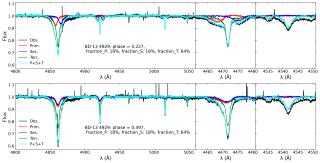Today marks the official start of this outreach project in astronomy, which promotes scientific education and supports the young people and the teachers who live in the saharaui refugee camps. The activities of astronomical popularization and the visits to the Canary Observatories will start on July 20th, and will last until October, when an international team, with participation from the Instituto de Astrofísica de Canarias (IAC) will travel to the saharaui refugee camps near Tinduf, in Algeria.
Amanar, which means The Pleiades” in Berber, is an astronomical outreach project to inspire the saharaui community using the wonders of our universe, and to encourage peace, mutual understanding and a sense of citizenship under the same sky.
The aim of this initiative is to stiumulate the teachers andsupport the schools in the refugee camps of Tindouf (Algeria) via training courses and the donation of educational resources. The visit to the refugee campswil take place on October 19th and will also be useful to study, registrer and popularize the astronomical knowledge of the saharaui population, which are in current use by drivers and shepherds to orient themselves in the desert. In addition telescopes will be taken to the schools visited so that they can organize their own astronomical observations in a continuous and self-sufficient way.
The project will also promote educational and play activities, astronomical observations, and visits to the Canary Observatories, with the saharaui boys and girls who will spend summer in the islands in the framework of the Holidays in Peace programme.
International collaboration
Amanar is an intiative conceived by the international GalileoMobile organization in collaboration wiht the Canary Association for Friendship with the Saharaui People. The project is co-financed by the IAC and the International Astronomical Union (IAU) via its Office of Astronomy for Development and, during the commemoration of its 100th anniversary, has been selected as a “Special Project” within this framework.
Sandra Benitez, an outreach astrophysicist in the Unit of Communication and Science Culture (UC·¡3) of the IAC and member of GalileoMobile since 2011 is the coordinator of this initiative. Other active participants include the outreach astrophysicist Nayra Rodriguez and the science journalist Iván Jiménez, both from the UC3 as well as the experto on Ethno- and Archaeo-astronomer Juan Antonio Belmonte, an IAC researcher.
“The long-term objective of the project is to raise the consciousnouss of the national and international communities about the hard conditions of the sahraui population in the refugee camps, a situation which they have suffered foro ver 40 years. To do this we will produce several audiovisual films, such as an immersive 360º video and an interactive documentary which we hope will give a voice to those who participate in the project and will distribute their message of peace and social justice. The participating institutions have committed to help in this sense” says Sandra Benitez.
A diverse group of astronomical institutions have contributed altruistically to the different parts of the project, showing their solidarity with the saharaui people.Among them the Cherenkov Telescope Array (CTA Observatory) is making an important commitment to the organization and the logistics of the activities to be carried out in La Palma and Tenerife. Also the Virgo collaboration and Meade instruments are donating educational kits and telescopes respectively, the Gran Telescopio de Canarias (GTC) and the Large Sized Telescope (LST-1) both of them at the Roque de los Muchachos Observatory (Garafía, La Palma) will make their installations available for a visit by the sahraui children.
Other organisms which are collaborating are the International Office for diffusion of astronomy the Network of Astronomical translation of the IAU and the Department of Education and Universities of the Government of the Canaries.
Holidays in peace under the stars
The activities in the Canaries will take place during the months of July and Augusto n three different islands. On Tenerife and La Palma the activities will consist of visits to the Teide Observatory and the Roque de los Muchachos Observatory which will include talks about the solar system, creative workshops, and astronomical obserations.
In Gran Canaria the event will take place in the Juan de Zamora educational centre in Arucas, where saharaui and local children will go to learn about astronomy and enjoy observing the sky together. This event will have collaboratin by the Astronomical Group of Gran Canaria and the Observatory of Temisas which will participate with personnel, telescopes, and outreach material.
GalileoMobile is an international itinerant non-profit project whose aim is to share astronomy with students and teachers in rural communities with limited access to programmes of this type. The team is formed by a group of 15 volunteer astronomers, educatorsand science communicators from all over the world. Since its creation in 2008 GalileoMobile has reached more than 1,400 teachers and 16,000 students, donating hundreds of telescopes and organizing public observations in 15 countries: Argentina, Bolivia, Brazil, Chile, Cyprus, Colombia, Ecuador, the USA, Spain, Guatemala, India, Nepal, Perú, the Dominican Republic, and Uganda.
More information:
Web page of the AMANAR project
Web page of the Holidays in Peace projects
Youtube video about Amanar: https://youtu.be/rnS1C-msTJk
Contact:
Sandra Benítez Herrera, astrofísica coordinadora: sbenitez [at] iac.es
Video: https://youtu.be/rnS1C-msTJk




